HEALTHCARE AND PHARMA
Immersive Technologies, Healthcare, and Pharma: Applications of Augmented Reality and Virtual Reality
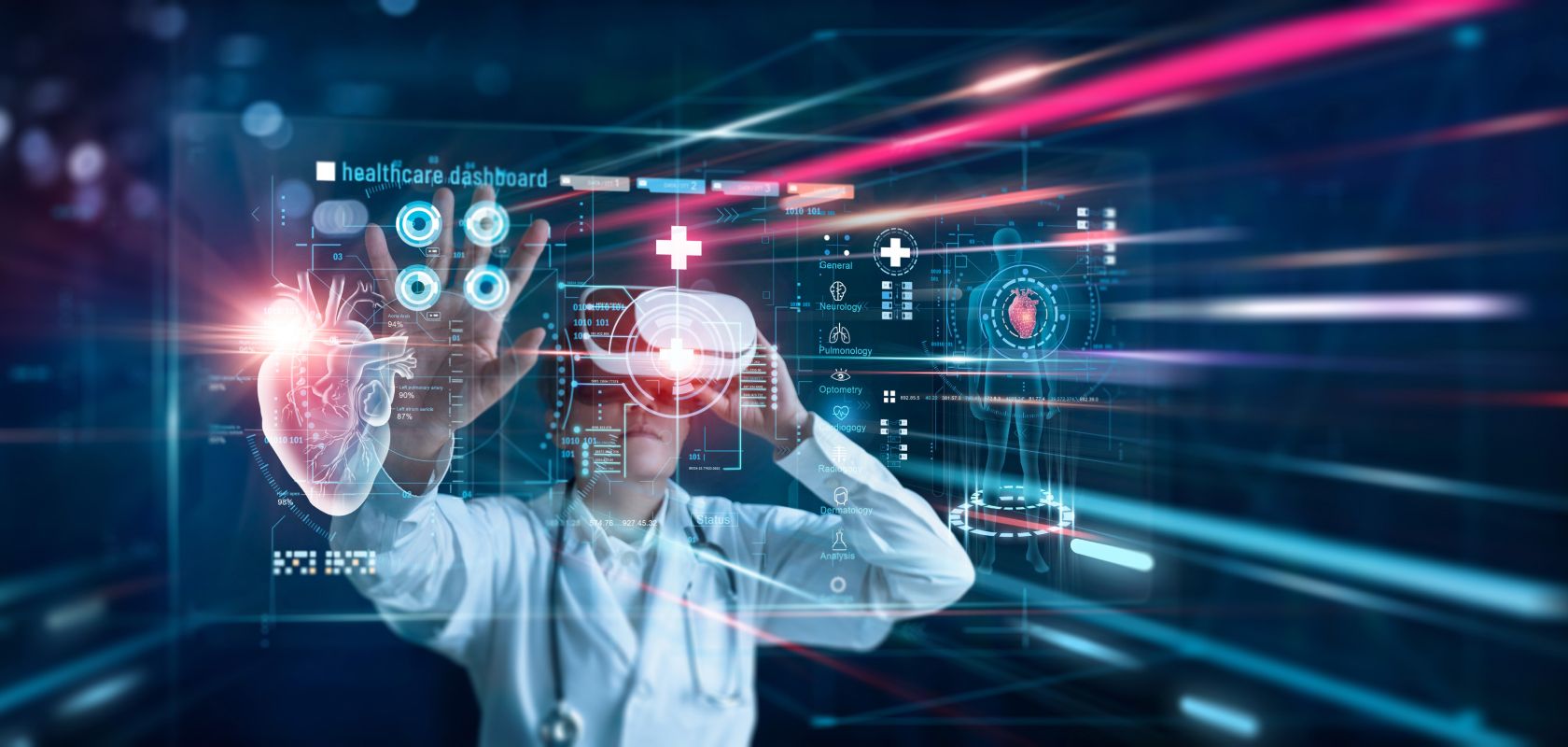
AR, VR, and AI are revolutionizing the healthcare and pharmaceutical industries—enhancing medical training, nursing support, and patient education. From interactive simulations for clinical staff to AI-powered virtual assistants for patient guidance, immersive technologies improve accuracy, understanding, and outcomes. At Vection Technologies, we empower healthcare providers with smart, immersive tools that make care delivery more efficient, human, and effective.
Immersive Technologies, Healthcare, and Pharmaceutical Industries: Growth and Expansion
Immersive technologies like AR, VR, and AI are no longer optional—they’re essential to the evolution of healthcare and pharmaceutical innovation.
With the market projected to grow by over $4.6 billion by 2025 (Statista), these tools are driving smarter training, safer procedures, and more effective patient engagement.
Vection Technologies delivers AI-powered, immersive solutions that support clinical excellence and accelerate digital transformation across the health ecosystem. (https://www.statista.com/statistics/1033162/healthcare-ar-and-vr-market-forecast-worldwide-by-region/)
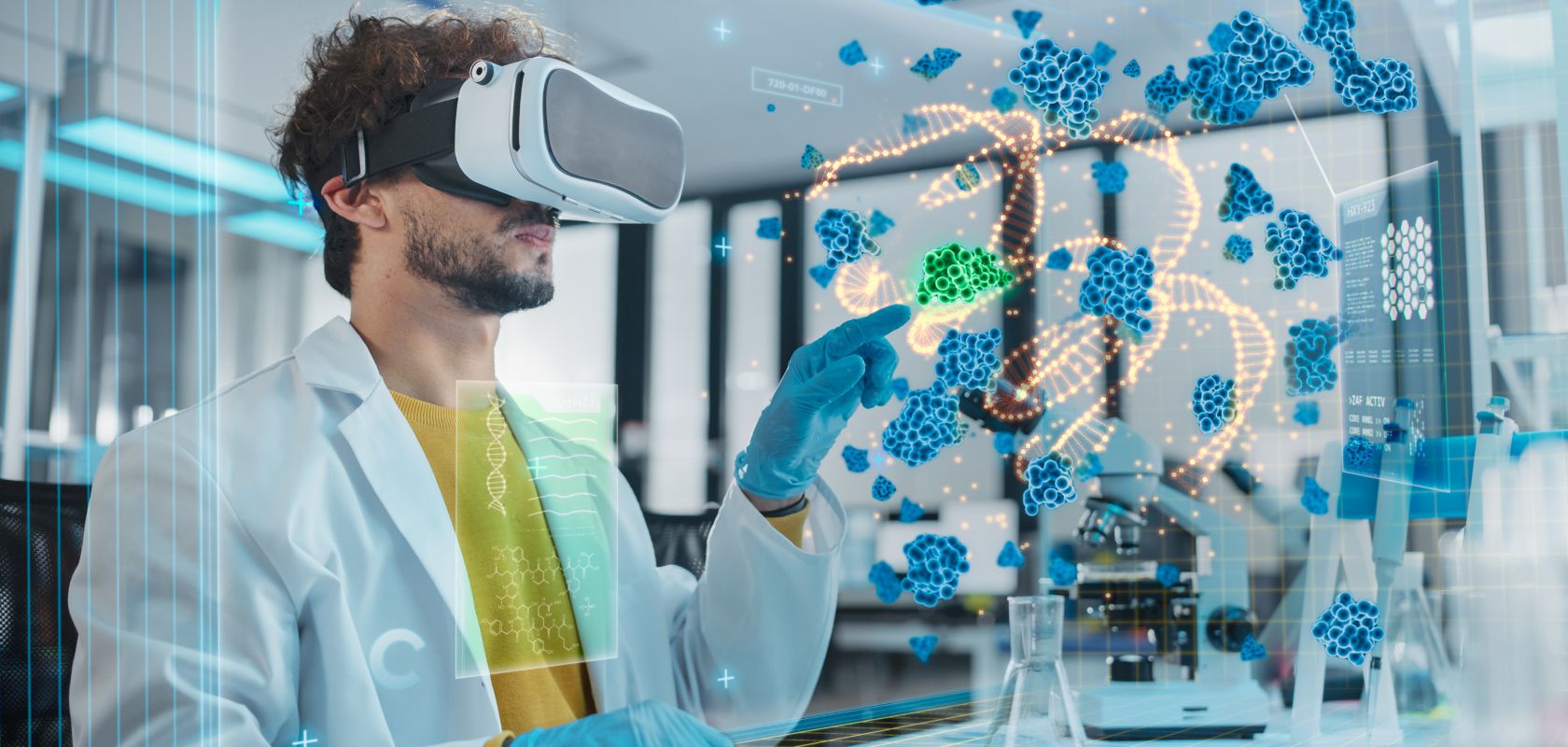
Augmented Reality, Medicine, and Pharmaceuticals
Augmented Reality, combined with AI, is transforming the healthcare and pharmaceutical sectors—unlocking new opportunities for training, patient engagement, and innovation.
From interactive simulations for medical staff to personalized health education for patients, AR devices like smartphones, sensors, and smart glasses make complex information more accessible and actionable.
At Vection Technologies, we deliver intelligent, immersive solutions that improve outcomes and support the well-being of people worldwide.
What is AR?
AR is a technology that allows a superposition of visual information from the real world experienced by people and virtual manufactured elements and environments. Consequently, virtual and real worlds are intermingled in real-time through AR technologies and devices. Also, VR promotes a quick adaptation of users to these merged realities to gain insights into specific events, sensations, emotions, and interactions. Hence, augmented reality is applied in health care and pharma to enhance medical services and training.
Applications of AR in Healthcare and Pharma
AR in surgery
Using AR technologies, doctors can visualize bones, tissues, and organs to perform surgeries more efficiently. In addition, they can obtain information that can benefit patients' health or, eventually, save their lives. Moreover, doctors can study the anatomy of their patients through unprecedent levels of visualization.
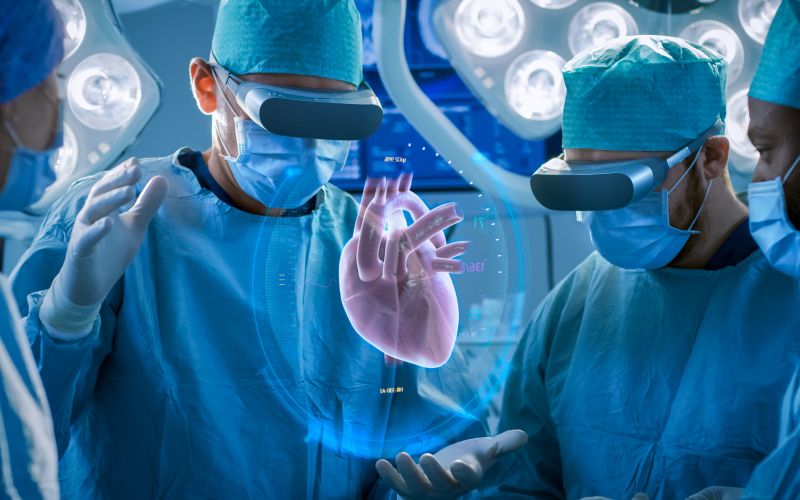
AR in diagnosis
AI combined with immersive technologies is transforming diagnostics. Key benefits include: Real-time analysis: AI algorithms detect patterns in medical images viewed through AR interfaces Enhanced communication: Patients better visualize conditions while AI assistants help accurately describe symptoms Remote capabilities: Virtual patient representations allow physicians to examine and diagnose from anywhere This technological convergence makes diagnostics more accurate, accessible, and efficient.
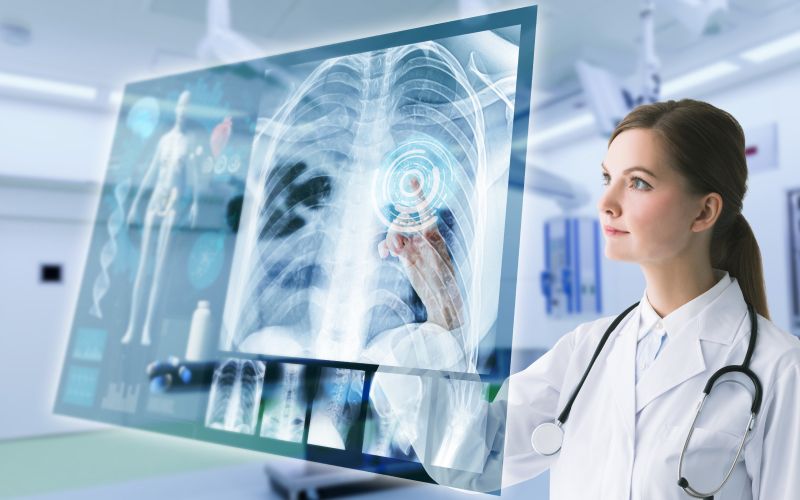
AR and defibrillators
AR enhances training initiatives for nursing and medicine students in defibrillators. This immersive technology can help students engage with their emotions in emergencies.
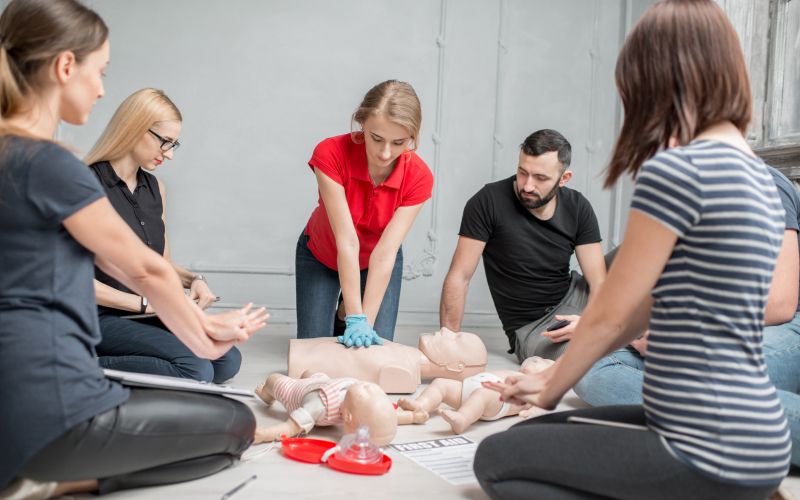
Drug information and AR
Pharma companies can use AR to display essential drug information to avoid medication administration errors through AR.
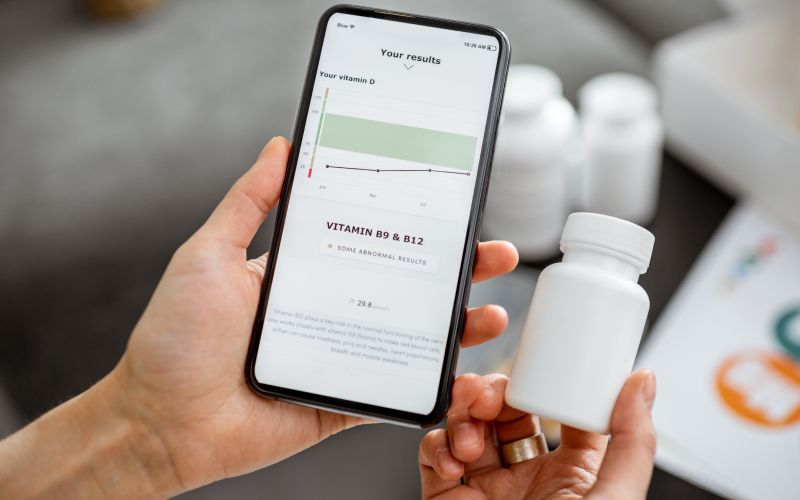
Anatomy and health education for children
Children can learn about the human body through smartphone or wearables devices. In addition, AR can be used by pharmaceutical companies to develop new products, boost sales, and improve relationships with hospitals, doctors, and patients.
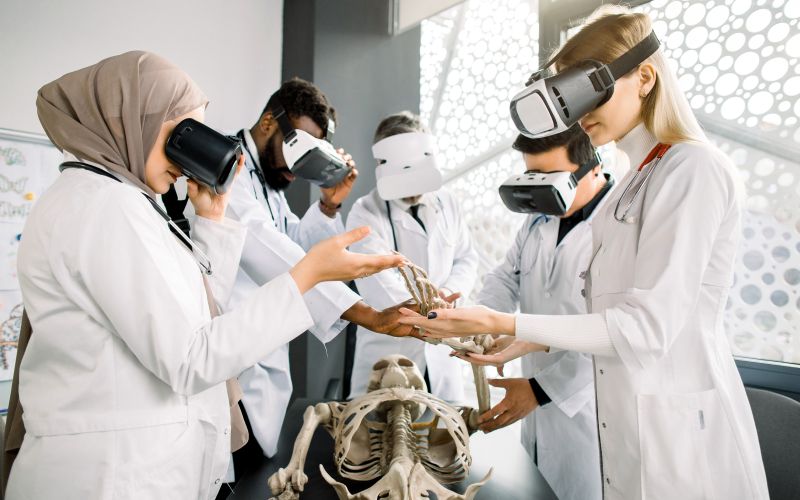
Visualization of components and processes
Pharmaceutical companies can use AR to present drugs' manufacturing and functioning to doctors and patients. As a result, AR technologies may help improve sales and pharmaceutical products' demonstrations at medical and healthcare conferences.

Patient education
Pharmaceutical companies can utilize AR to educate patients on dosage for specific drugs.
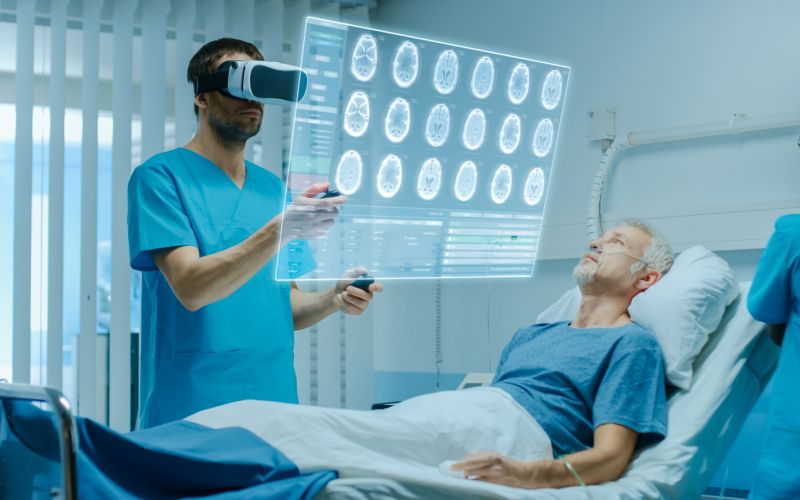
Pharma manufacturing
AR can be incorporated into companies to manufacture drugs more efficiently. AR technologies allow visualizing how the chemical components of medicines act in the body. Hence, AR can improve health care products.
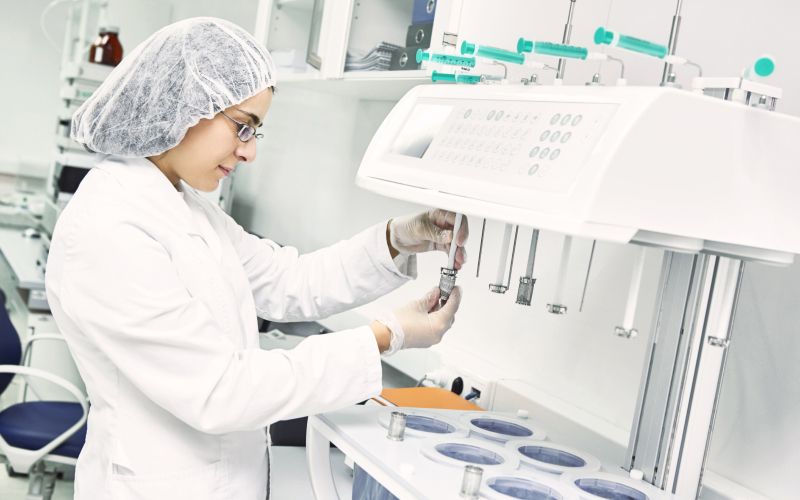
Drug discovery
AR is used to research and discover new drugs to alleviate human diseases. This immersive technology also allows data to be visualized to develop new vaccines or medicines for significant diseases.

Product Research
Companies can incorporate AR into their research projects to discover and produce new drugs and understand how their insertion into the market for commercial use would develop.

Virtual Reality, Healthcare, and Pharmaceutical Industry
VR also has exciting applications in the healthcare and pharma industry. This immersive technology benefits medical training, patient education and the production of innovative medicines. However, what is VR? What are its applications in the medicine and pharmaceutical industries? We will explain everything you need to know about these topics.
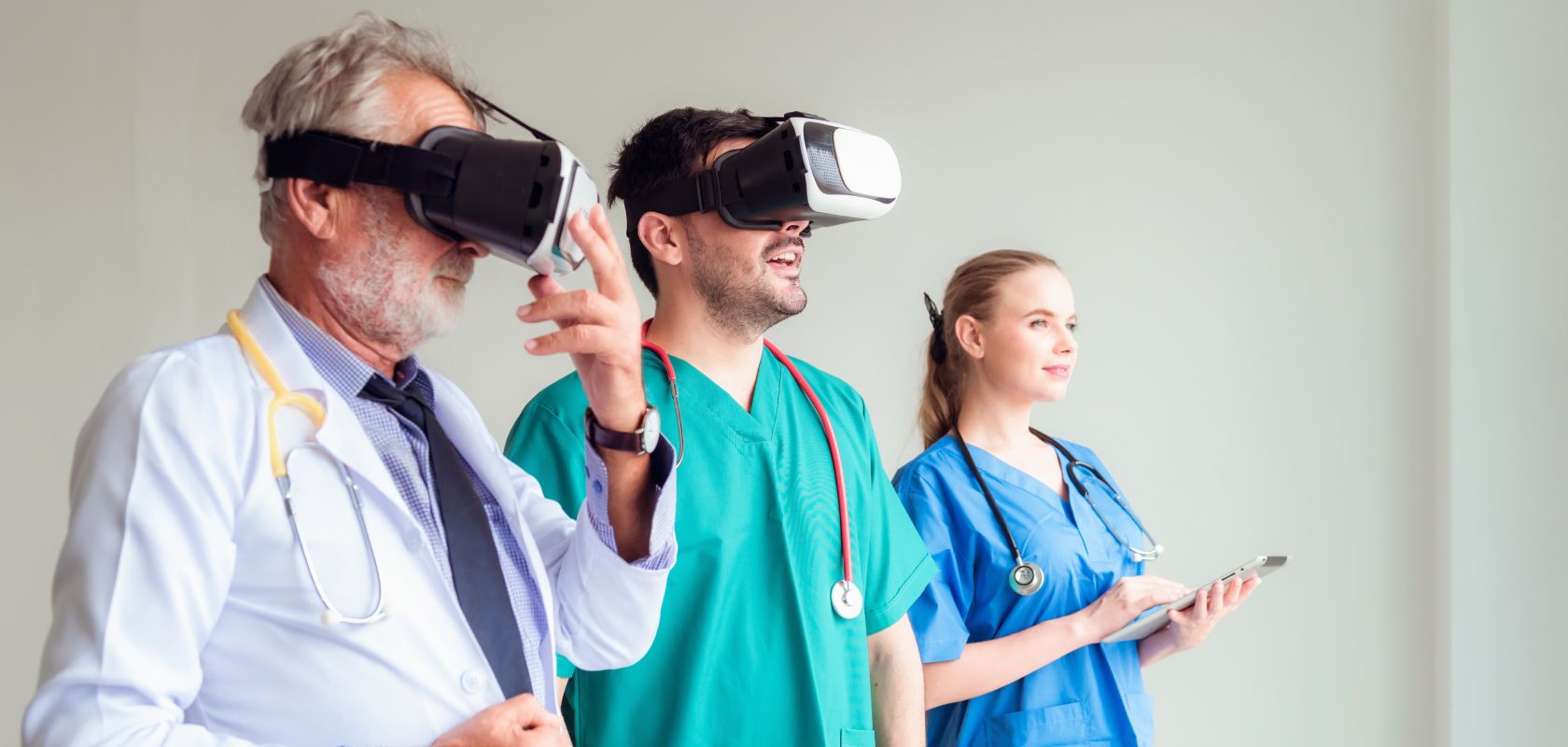
VR Explained
VR comprises a set of computer techniques and technologies that create environments, objects, and people through visual devices, such as headsets. Through VR, people have the feeling that they are living in virtual fabricated reality as their own.
There are several types of virtual reality:
Applications of VR in Healthcare and Pharma
VR can be used with excellent results in the health care and pharma industry. For example, VR can create new life-saving techniques for patients and train medical and nursing professionals.
Medical training
VR can transport people inside the human body and access regions that would be impossible to reach otherwise. Today, medical and nursing students can use VR technologies to understand complex topics in anatomy.
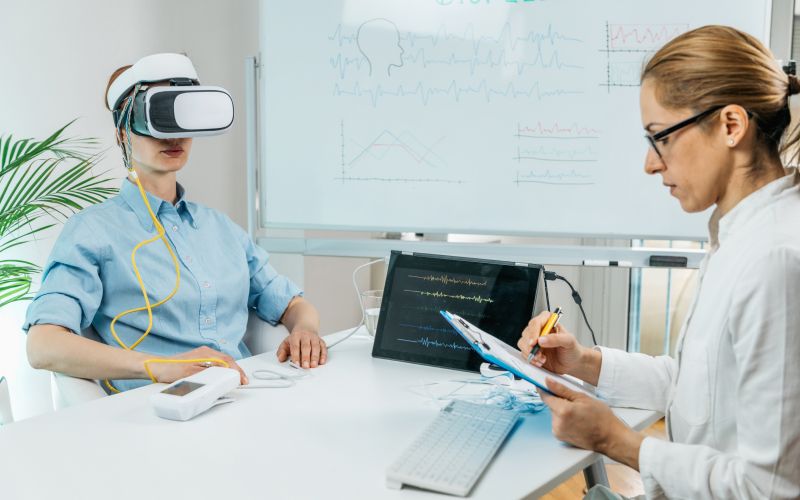
Patient education
Patients can use VR headsets and computers to learn about their bodies and have healthy habits that improve their health. Patients can also recreate their bodies and anatomy through virtual fabricated realities to learn about particular diseases.
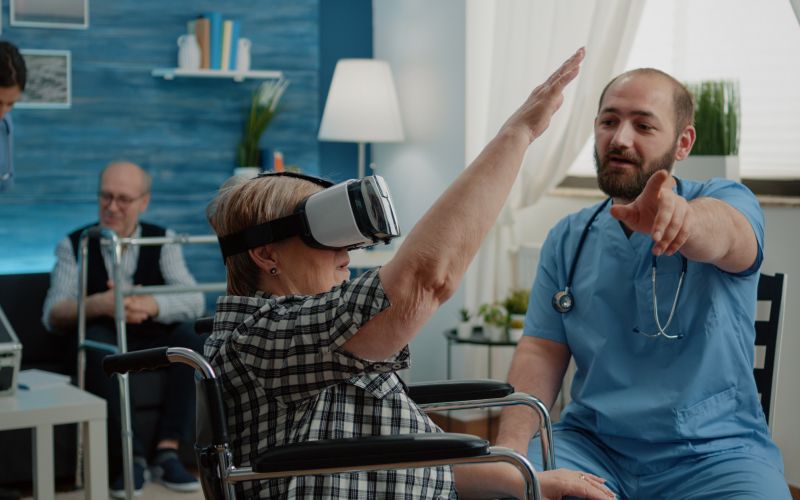
Robotic surgery and mental health
Physicians and mental health therapists can use VR to develop robotic surgery initiatives or improve the patient consultation experience.
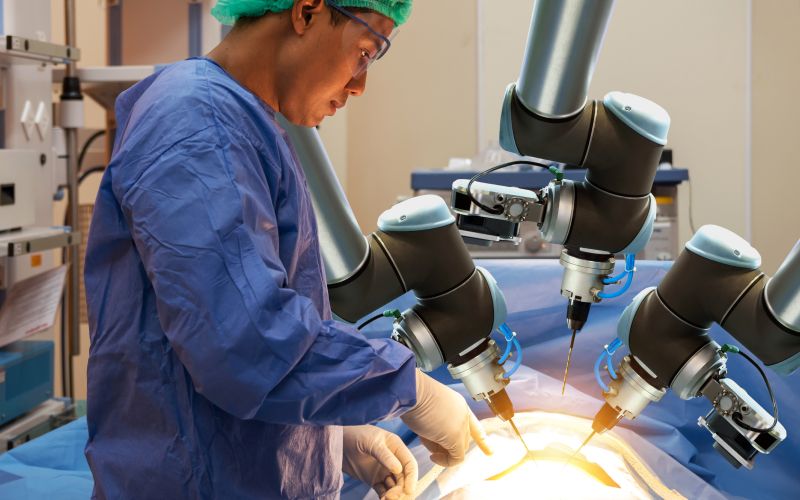
Takeaway
AR and VR play an essential role in expanding and growing the healthcare and pharmaceutical industries. Undoubtedly, the immersive technologies market is booming because of its current applications in healthcare and pharma. AR and VR improve the quality of life of people suffering from different diseases and simultaneously enhance health professionals' knowledge and practice.